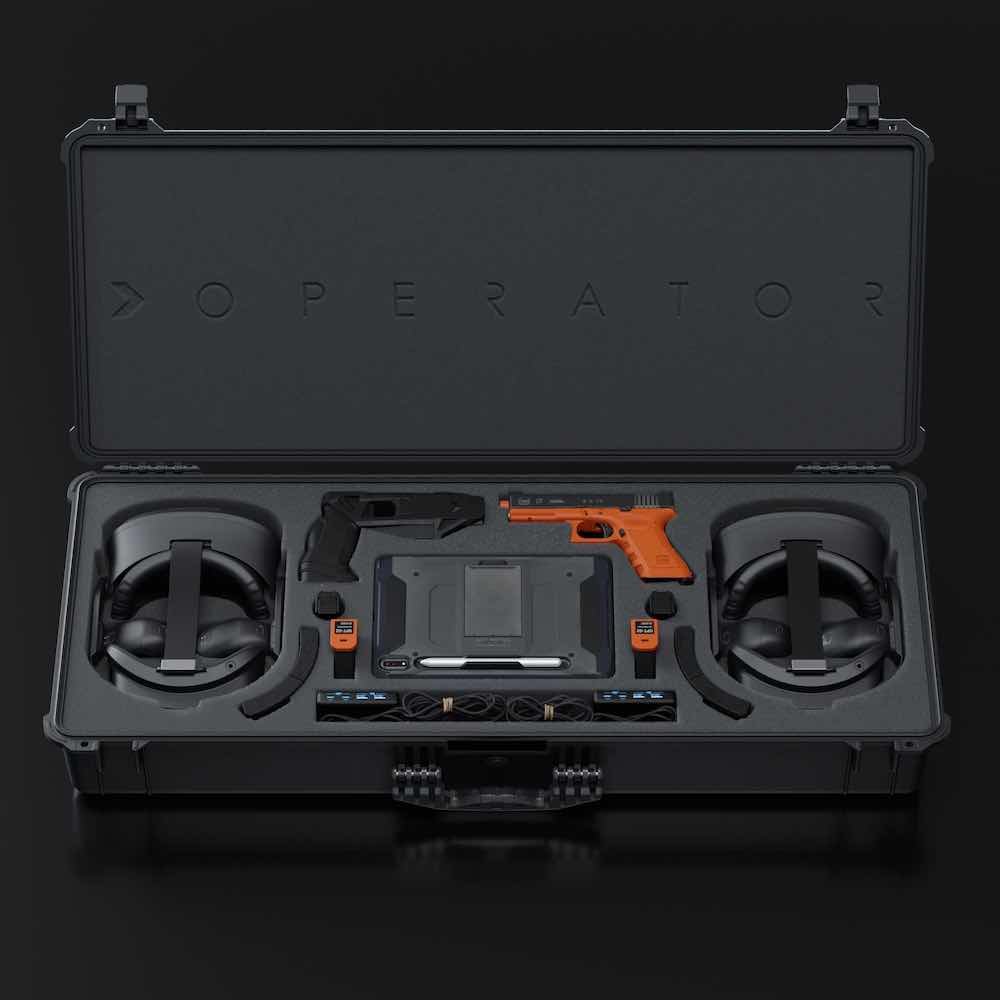How Operator XR Drives ROI For Law Enforcement
Introduction
Virtual Reality (VR) technology has emerged as a powerful tool in the training of law enforcement officers, providing immersive and realistic scenarios that enhance officer learning, decision-making abilities, and situational awareness. This overview outlines the use of VR as an enhanced training tool for law enforcement officers, discussing its agency benefits, applications, and potential impact on officer preparedness and public safety.
Benefits of VR Training for Law Enforcement Officers
Operator XR enables law enforcement officers to train in realistic simulations of contemporary policing scenarios including encounters with armed suspects, non-compliant individuals, or emotionally disturbed persons. Exposing officers to these lifelike situations virtually allows them to practice making split-second decisions, enhancing situational awareness, improving threat assessment recognition, and appropriate application of use of force (UOF). Realistic VR simulations provide a safe and controlled environment for officers to practice proportionate responses and test their decision-making skills, helping them develop critical competencies without exposing them to real-world risks. VR training helps to promote officer safety, public safety, and accountability.
Training Cost and Efficiency Savings
Operator XR allows for training sessions to be run by just one instructor with two or more trainees and no role players are required. Police training units can save on personnel by using fewer instructors to deliver their training programs. Training time is reduced as Operator XR allows for increased student throughput with less down time of officers during training or to complement existing training as a concurrent activity. This results in a more efficient use of time and resources while in turn adding training consistency and accurate repetition of situations. The ability to decentralise training with a highly portable standalone VR system, allows for increased flexibility and efficiency across large geographic policing jurisdictions. Operator XR runs on a gas system, which is significantly cheaper per round compared to traditional simunition systems. Operator XR allows police agencies to track performance by adding the option to record sessions to ensure compliance with training standards and provides valuable data metrics for future officer improvement.
The Operator XR Law Enforcement training configuration for 2 trainees, complete with 2x Glocks, 2x CEWs and 2x OC Sprays.
Improved Situational Awareness
VR training provides officers with the opportunity to practice and refine their tactical skills, such as building searches, hostage rescues, and high-risk situations. By immersing officers in virtual environments that replicate real-world settings, VR enhances their ability to respond effectively and make split-second decisions under stress. Immersive simulations help officers develop and rehearse their coordination, teamwork, and situational awareness, preparing them for dynamic and unpredictable situations they may encounter in operational policing environments.
De-escalation and Crisis Intervention Training
VR can be instrumental in training officers in de-escalation techniques and crisis intervention. Through interactive scenarios involving emotionally charged situations, officers can practice their communication and conflict resolution skills, learning how to defuse tense situations and minimise their UOF where appropriate. This type of training promotes community-oriented policing and enhances officers' ability to handle diverse and sensitive interactions with the public. VR can assist in training officers to interact effectively with individuals from diverse backgrounds and cultures. Simulations can expose officers to scenarios that require cultural sensitivity, non-verbal communication skills, and de-escalation techniques. By practicing these interactions in a virtual environment, officers can enhance their cultural awareness and reduce the likelihood of behavioural misinterpretation.
Ethical Decision-Making Training
VR can be used to facilitate training in ethical decision-making for law enforcement officers. By presenting officers with complex scenarios that involve ethical dilemmas, VR training prompts them to analyse situations, consider the potential consequences of their actions, and make principled decisions. This helps foster a strong sense of professionalism and integrity within the law enforcement community.
Evaluation and Feedback
Operator XR systems include performance evaluation and feedback mechanisms. Officers can review their actions and responses during the simulations, allowing for self-reflection and analysis of their performance. Instructors and supervisors can also provide feedback based on the data captured by the VR system, identifying areas for improvement and tailoring training programs around contemporary policing issues.
Summary
VR technology holds immense potential for enhancing law enforcement officer training. By providing realistic simulations, cost and efficiency savings, improved situational awareness, de-escalation and crisis intervention training, ethical decision-making training, and evaluation and feedback mechanisms, VR is revolutionizing the way law enforcement agencies prepare their officers for the challenges they face in their daily duties. As VR technology continues to advance, it will undoubtedly play a vital role in shaping the future of law enforcement training, promoting officer competence, public safety, and community trust.


